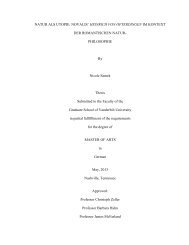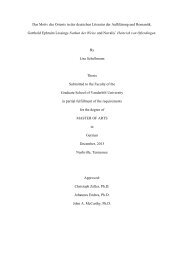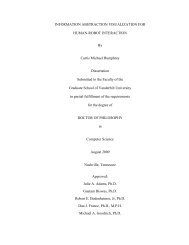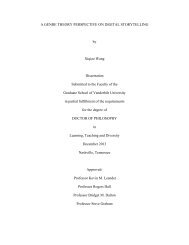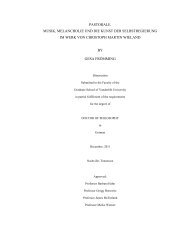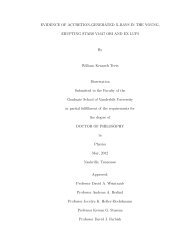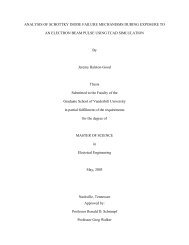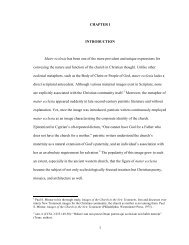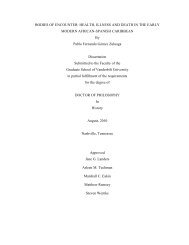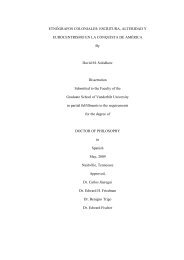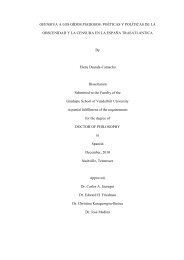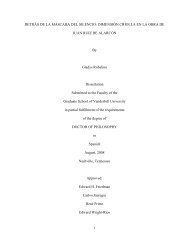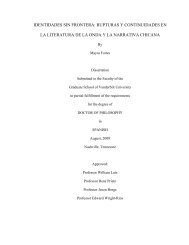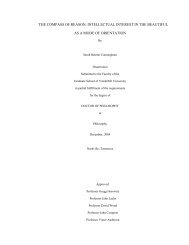THE DEATH OF DIONYSOS - ETD - Vanderbilt University
THE DEATH OF DIONYSOS - ETD - Vanderbilt University
THE DEATH OF DIONYSOS - ETD - Vanderbilt University
You also want an ePaper? Increase the reach of your titles
YUMPU automatically turns print PDFs into web optimized ePapers that Google loves.
armed with the distinct impressions of the imagination, could harness what might not be<br />
penetrated. Descartes had insisted, and Newton demonstrated, that natural and cosmic<br />
phenomena might be reduced to formalistic relations expressible in the rational terms of<br />
mathematics, which in turn made it possible to predict the outcome of other, analogous<br />
phenomena. Such success was possible, only because the imagination provided rational<br />
representations of the objective world, without which recent advances in technology and<br />
engineering would have been impossible. Men were confidant that they recognized reality<br />
because, armed with technology, they could imitate and sometimes even alter it to suit<br />
their purposes.<br />
Unfortunately, the imagination turned out to be something of a maverick, even<br />
eccentric member of the cognitive team. 10 Indulged with too many unreal impressions–<br />
due, say, to religious mysticism, to the surreptitious reading of romances, or to all too<br />
frequent visits to the theater–a captive imagination might end up ignoring the input of the<br />
senses, preferring the flattering representations of fiction to mundane reality, favoring<br />
unreason over reason. That is precisely the trouble with the boy Wilhelm when the<br />
visions afforded him by the puppet theater disappear, leaving only the dull doorframe of<br />
the day before: “‘Den andern Morgen war leider das magische Gerüste wieder<br />
verschwunden, der mystische Schleier weggehoben, man ging durch jene Türe wieder frei<br />
aus einer Stube in die andere, und so viel Abenteuer hatten keine Spur zurückgelassen’”<br />
(17). [“‘Next morning that magic structure had vanished, the mystic curtain was gone and<br />
you could once again move without hindrance from one room to the next. All the<br />
enchantment had disappeared and left no trace’” (EAB 6).] A second production of the<br />
puppet show offers Wilhelm a glimpse behind the curtain and into the technical apparatus<br />
10 Foucault writes of the “arbitrariness of the imagination” in what he calls the classical age. See<br />
Madness and Civilization: A History of Insanity in the Age of Reason (New York: Vintage Books,<br />
1988), pp. 93-94. He notes that, while the imagination was not thought to be the source of<br />
madness, “it is profoundly rooted in it”. What he means is that the images it provides were<br />
assumed to be entirely subject to the will; that when passions disrupt the balance in mind and<br />
body, the imagination is highjacked, as it were, to provide the image that suits desire.<br />
5



